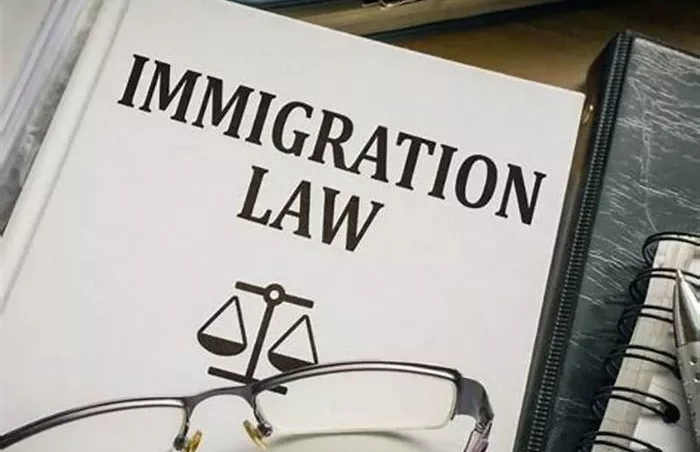The journey of immigration is often laden with complexities, from navigating legal processes to adjusting to new cultures. Within this intricate framework lies the concept of the “7-Year Rule,” a term frequently discussed in immigration discourse. This rule holds significance for individuals seeking residency or citizenship in various countries, including the United States and the United Kingdom. In this article, we delve into the intricacies of the 7-Year Rule, exploring its origins, applications, and implications for immigrants worldwide.
Origins and Legal Basis
The roots of the 7-Year Rule can be traced back to the legal frameworks governing immigration policies in different nations. While variations exist among countries, the underlying principle often revolves around the concept of continuous residence or lawful presence for a specified duration. In essence, individuals who can demonstrate a continuous period of residency spanning seven years or more may be eligible for certain benefits or protections under immigration law.
In the United States, the 7-Year Rule finds its basis in immigration statutes and precedents established by immigration courts. Under certain circumstances, individuals who have resided continuously in the U.S. for at least seven years, without any significant breaks in their presence, may be eligible to apply for relief from deportation or removal proceedings. This provision, often invoked in cancellation of removal cases, underscores the importance of long-term residency as a mitigating factor in immigration proceedings.
Similarly, in the United Kingdom, the 7-Year Rule pertains to immigration applications based on private and family life. Individuals who have lived continuously in the UK for at least seven years, with lawful immigration status, may be eligible to apply for leave to remain on the basis of their established ties and integration into British society. This provision, enshrined in immigration rules and policies, acknowledges the significance of prolonged residence in determining an individual’s right to remain in the country.
Applications and Eligibility Criteria in US
The application of the 7-Year Rule varies depending on the specific immigration context and jurisdiction. In the United States, eligibility for relief under the 7-Year Rule is typically assessed in the context of cancellation of removal proceedings before immigration judges. To qualify, individuals must meet certain criteria, including:
Continuous Residence: Demonstrating uninterrupted physical presence in the U.S. for a period of at least seven years, calculated from the date of entry or lawful admission into the country.
Good Moral Character: Maintaining a record of good conduct and moral character during the period of residence, as evidenced by factors such as criminal history, employment, and community involvement.
Hardship Considerations: Providing evidence of exceptional and compelling hardships that would result from the individual’s removal, both to themselves and to qualifying relatives, such as spouses, children, or parents who are U.S. citizens or lawful permanent residents.
Meeting these criteria can strengthen an individual’s case for relief under the 7-Year Rule, offering a potential pathway to legal status and protection from deportation.
Applications and Eligibility Criteria in UK
In the United Kingdom, the 7-Year Rule applies to immigration applications under Appendix FM of the Immigration Rules, which governs family and private life-based immigration routes. To be eligible for leave to remain on the basis of long residence, applicants must satisfy the following requirements:
Continuous Residence: Demonstrating a period of lawful and continuous residence in the UK for at least seven years, with any periods of overstaying or unlawful presence addressed in accordance with immigration rules and policies.
Integration and Contribution: Providing evidence of integration into British society, such as employment, education, language proficiency, community ties, and adherence to societal norms and values.
Exceptional Circumstances: Articulating any exceptional circumstances that would justify a grant of leave to remain outside the immigration rules, taking into account factors such as age, health, family relationships, and length of residence.
Fulfilling these requirements is essential for individuals seeking to leverage the 7-Year Rule as a basis for securing their legal status and right to remain in the UK.
Implications and Considerations
The application of the 7-Year Rule carries significant implications for immigrants and their families, shaping their legal status, rights, and prospects for integration. For individuals facing deportation or removal proceedings in the United States, invoking the 7-Year Rule can provide a lifeline, offering an opportunity to present their case for relief based on their prolonged residence and ties to the community.
Similarly, in the United Kingdom, reliance on the 7-Year Rule can serve as a means of safeguarding family life and preserving established ties to the country. By demonstrating a substantial period of lawful residence and integration, individuals may seek to secure their right to remain in the UK on humanitarian and compassionate grounds, notwithstanding strict immigration rules and requirements.
However, it is important to note that the application of the 7-Year Rule is subject to legal interpretation and discretion, with outcomes varying based on individual circumstances and judicial determinations. Success in invoking the 7-Year Rule often hinges on the strength of the applicant’s case, supported by compelling evidence and legal arguments presented before immigration authorities or courts.
Moreover, the 7-Year Rule is not a panacea for all immigration challenges, and its effectiveness may be limited by factors such as changes in immigration policies, enforcement priorities, and legal precedents. As such, individuals considering reliance on the 7-Year Rule should seek guidance from qualified immigration professionals and legal experts to assess their eligibility and explore potential avenues for relief.
Conclusion
In conclusion, the 7-Year Rule represents a pivotal concept in immigration law, offering a pathway to legal status and protection for individuals who have established long-term residence in their host countries. Whether in the United States or the United Kingdom, understanding the nuances of this rule is essential for immigrants navigating the complexities of the immigration system and seeking to secure their rights and futures in their adopted homes.


